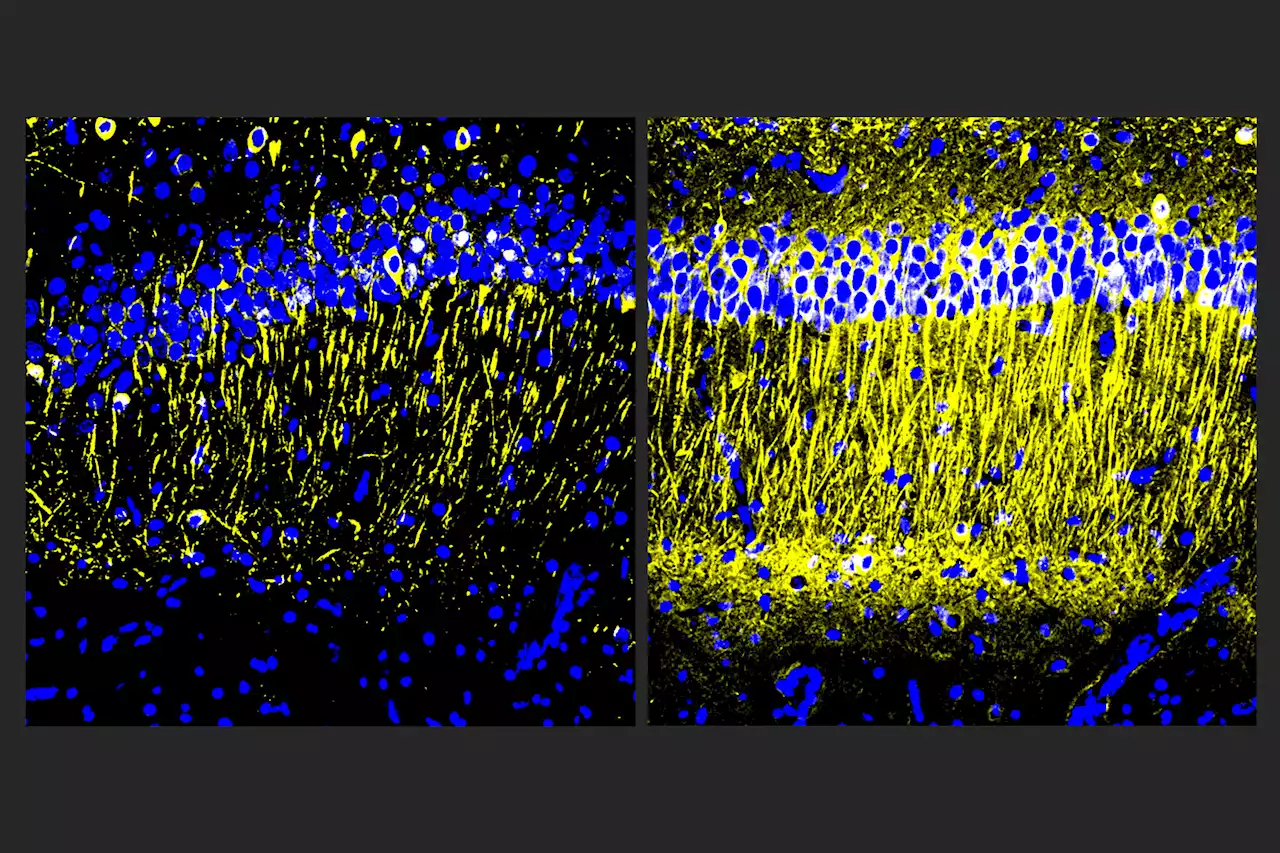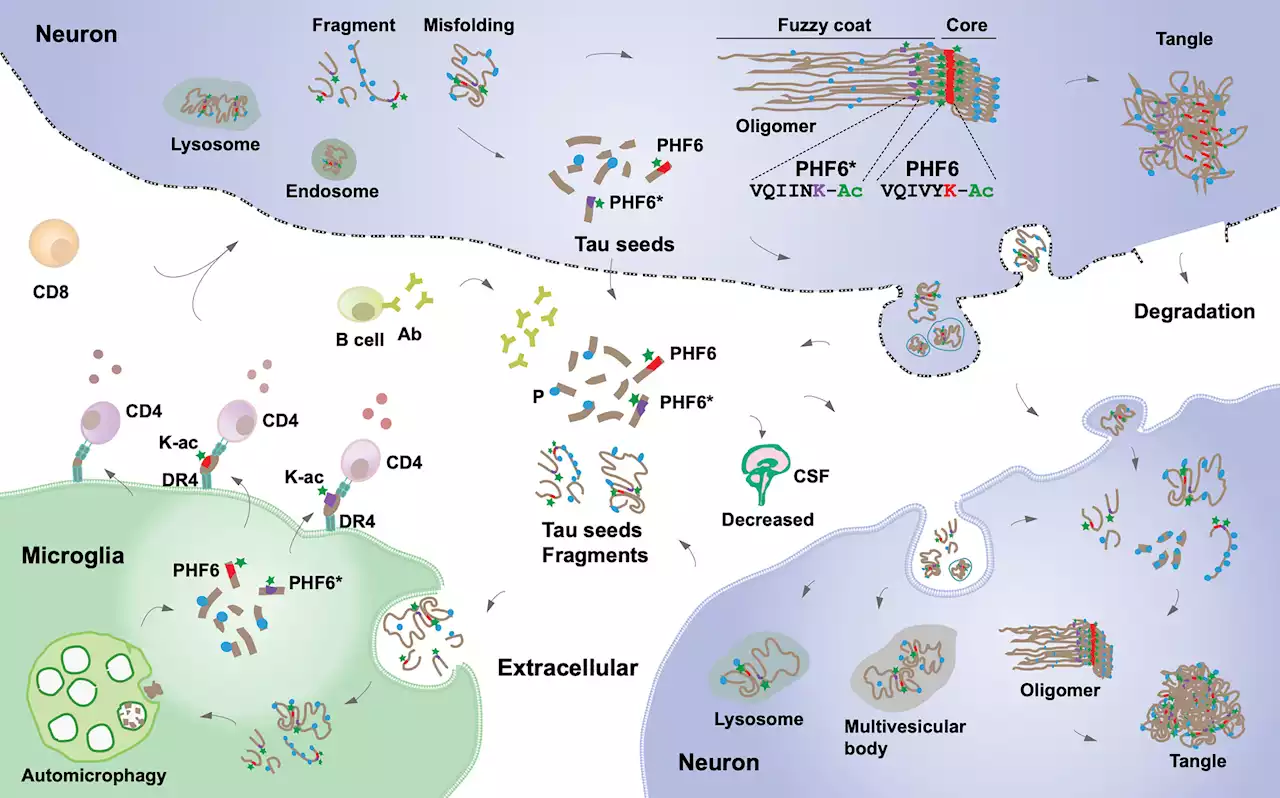A new study by researchers from Mass General Brigham further illustrates that when it comes to risk of Alzheimer's disease, even genetically determined forms of the disease, genetics is only one piece of the puzzle.
on cognitive decline by studying data from 675 people who carry a mutation that predisposes them to early onset Alzheimer's disease. Carriers of this mutation—known as PSEN1 E280A—have a median age of 49 for onset of dementia. The team found that among carriers who also carried a second mutation that puts them at heightened risk—APOE e4—had an accelerated age of onset of. Among carriers who had an APOE e2 mutation—known to be protective—age of onset was delayed.
The team also assessed the effect of educational attainment on cognitive function among PSEN1 E280A mutation carriers, including those who carried different APOE genotypes. They found that higher educational attainment—that is, more years of education—was associated with preserved cognitive ability, particularly for those at highest genetic risk., even in the presence of strong genetic risk factors," said corresponding author Yakeel Quiroz Ph.D.
The research team included investigators from Massachusetts General Hospital, Brigham and Women's Hospital, Mass Eye and Ear, and national and international collaborators.Stephanie Langella et al, Effect of apolipoprotein genotype and educational attainment on cognitive function in autosomal dominant Alzheimer's disease,
Danmark Seneste Nyt, Danmark Overskrifter
Similar News:Du kan også læse nyheder, der ligner denne, som vi har indsamlet fra andre nyhedskilder.
 Discoveries on memory mechanisms could unlock new therapies for Alzheimer's and other brain diseasesScientists at the University of Colorado Anschutz Medical Campus have made a 'paradigm shifting' discovery on the mechanisms required for learning and memory that could lead to new therapies for Alzheimer's disease and potentially Down syndrome. The study was published in the journal Nature.
Discoveries on memory mechanisms could unlock new therapies for Alzheimer's and other brain diseasesScientists at the University of Colorado Anschutz Medical Campus have made a 'paradigm shifting' discovery on the mechanisms required for learning and memory that could lead to new therapies for Alzheimer's disease and potentially Down syndrome. The study was published in the journal Nature.
Læs mere »
 Scientists reverse Alzheimer's plaque formation in animal models by boosting activity of key ion channelLosing the activity of a key ion channel in the brain may contribute to the buildup of a devastating and toxic protein responsible for the clumps of plaque that accumulate in Alzheimer's disease, a team of neurobiologists in China has found.
Scientists reverse Alzheimer's plaque formation in animal models by boosting activity of key ion channelLosing the activity of a key ion channel in the brain may contribute to the buildup of a devastating and toxic protein responsible for the clumps of plaque that accumulate in Alzheimer's disease, a team of neurobiologists in China has found.
Læs mere »
 A 'mini-brain' traces the link between concussion and Alzheimer's diseaseHow much time elapses between a blow to the head and the start of damage associated with Alzheimer's disease?
A 'mini-brain' traces the link between concussion and Alzheimer's diseaseHow much time elapses between a blow to the head and the start of damage associated with Alzheimer's disease?
Læs mere »
 Molecule reduces inflammation in Alzheimer's modelsThough drug developers have achieved some progress in treating Alzheimer's disease with medicines that reduce amyloid-beta protein, other problems of the disease including inflammation, continue unchecked. In a new study, scientists at The Picower Institute for Learning and Memory at MIT describe a candidate drug that in human cell cultures and Alzheimer's mouse models reduced inflammation and improved memory.
Molecule reduces inflammation in Alzheimer's modelsThough drug developers have achieved some progress in treating Alzheimer's disease with medicines that reduce amyloid-beta protein, other problems of the disease including inflammation, continue unchecked. In a new study, scientists at The Picower Institute for Learning and Memory at MIT describe a candidate drug that in human cell cultures and Alzheimer's mouse models reduced inflammation and improved memory.
Læs mere »
 New study finds genetic factor fends off Alzheimer's and Parkinson'sAbout one in every five people carries a version of a gene that—although largely unsung—appears to confer protection against both Alzheimer's disease and Parkinson's disease, Stanford Medicine investigators and their colleagues have learned. These lucky people may someday benefit all the more from a vaccine that could slow or stall the progression of these two most common neurodegenerative conditions.
New study finds genetic factor fends off Alzheimer's and Parkinson'sAbout one in every five people carries a version of a gene that—although largely unsung—appears to confer protection against both Alzheimer's disease and Parkinson's disease, Stanford Medicine investigators and their colleagues have learned. These lucky people may someday benefit all the more from a vaccine that could slow or stall the progression of these two most common neurodegenerative conditions.
Læs mere »
 How diet and exercise may rewrite the Alzheimer's script at a molecular levelResearchers explore how lifestyle changes like diet and physical activity can influence microRNA expression in Alzheimer's patients, potentially offering new therapeutic avenues. The study fills a research gap in understanding how such lifestyle modifications could affect molecular mechanisms implicated in Alzheimer’s disease.
How diet and exercise may rewrite the Alzheimer's script at a molecular levelResearchers explore how lifestyle changes like diet and physical activity can influence microRNA expression in Alzheimer's patients, potentially offering new therapeutic avenues. The study fills a research gap in understanding how such lifestyle modifications could affect molecular mechanisms implicated in Alzheimer’s disease.
Læs mere »
